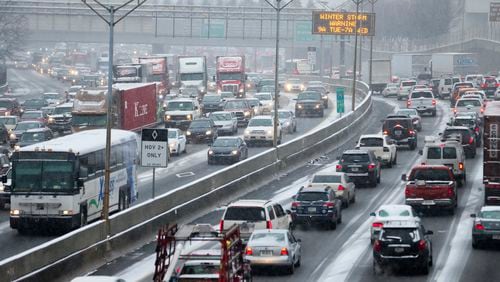Lobbyists spent $161,534 on food, drinks and assorted gifts for state lawmakers in January, a marked increase from the same time last year and bucking an overall trend of declining spending in the face of greater public scrutiny.
Last year, lobbying gifts to lawmakers totaled just $89,800 for the first month of the General Assembly’s annual legislative session. That’s a jump of nearly 80 percent in one year, but the increase comes with some snowy asterisks.
The snow storm that paralyzed metro Atlanta in 2014 had the side effect of dramatically cutting lobbyist spending, mostly because some large and pricey receptions had to be canceled or moved.
Credit: Chris Joyner
Credit: Chris Joyner
The Savannah Area Chamber of Commerce Seafood Festival, the largest lobbying expenditure of the year, traditionally occurs in January. Last year’s snow moved the event to March, but it returned to January this year with the eye-popping price tag of $79,798 – almost half of all reported expenditures for the month.
Without the Savannah feast, lobbyists spent $81,736, about on par with last year’s spending and down 39 percent from January 2013.
Another event affected by the 2014 snow was the annual Hall Booth Smith Pig Roast, a massive barbecue put on by the Atlanta-based law firm. Bad weather canceled the event last year and firm spokeswoman Nina Tickaradze said it will not return.
“That one was huge and it just kept growing and growing,” she said.
Tickaradze said the firm was instead concentrating on “a lot of smaller gatherings,” although Hall Booth has not disclosed any spending so far this year.
Lobbyists are required to disclose their spending to the state ethics commission every two weeks during the legislative session and monthly the rest of the year. Spending has been on the decline since 2012, a reaction to a prolonged campaign by a coalition of groups from across the political spectrum to reform.
Prior to 2014, there was no legal limit on what a lobbyist could spend on a public official in Georgia. Lawmakers reluctantly bowed to the pressure to reign in the system by passing a bill in 2013 capping expenditures at $75. The new law went into effect January 1, 2014.
The new cap came with enough exceptions to ensure lobbyists could continue to fete officials throughout the year, but total annual spending has come down by nearly 60 percent from 2011.
About the Author








